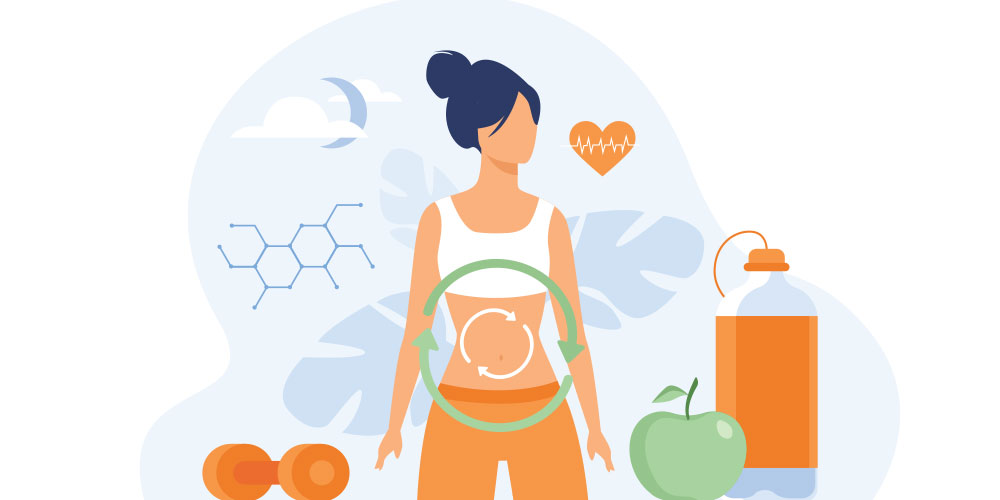By Lisa Abbay, R.D.
As a Registered Dietitian, I am often asked what foods we should eat to help balance a woman’s hormones. Hormones are chemical messengers that travel through the body to deliver messages to various organs to let them know what they need to do to keep your body running smoothly.
While many factors can affect hormonal balance, a healthy diet is one of the most significant. While no single food or behavior can magically fix pesky issues like fatigue, trouble losing weight, or sleep problems, I recommend filling your diet with anti-inflammatory fruits, vegetables, nuts, legumes, and omega-3 fatty acids as a great place to start for hormone health and overall health.
Here are some top food groups to eat more of to better your hormone health.
Carbohydrates:
These foods are high in nutrient-rich, high-fiber, and are ideal for hormone balance. Also known as complex carbohydrates, they will aid in stabilizing your blood sugar levels.
Fats:
Including high-quality, natural fats in your diet can help with insulin resistance while curbing your appetite. Some studies indicate that consuming healthy fats at meals can trigger the release of hormones that can help you feel satisfied after a meal.
Protein:
Protein is essential for hormone balance since it’s the main influencer of the hormones that control your appetite.
Consuming snacks that are made from whole foods and minimally processed can help improve hormonal balance.
Snack recommendations may include:
- Nuts and seeds can support hormonal health. They include healthy fats, protein, fiber, vitamins, and minerals.
- Fruits provide antioxidants that decrease inflammation, a stressor on the body.
- Other foods, such as full-fat yogurt, green leafy vegetables, and dark chocolate, support fertility and proper estrogen levels and provide specific nutrients that assist in insulin balance.
For overall health, hormonal balance is essential for all women, as hormones play a vital role in regulating various functions within our body every day. Hormonal imbalances have been linked to various health concerns, including high blood pressure, increased insulin levels, and a gut microbiome imbalance. Hormonal balance can be achieved by prioritizing the best foods for balance and adopting a healthy lifestyle that includes regular exercise, strength training, limiting stress, and a nutrient-rich diet.
Lisa Abbay, MBA, RDN, LDN, FAND, has over 24 years of experience as a Registered Dietitian in clinical nutrition, regional food service, and as a senior leader in Talent Acquisition. She is a freelance writer and speaker.







